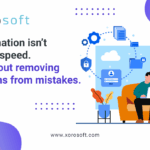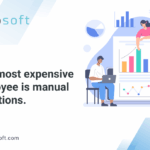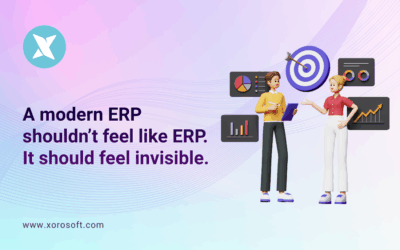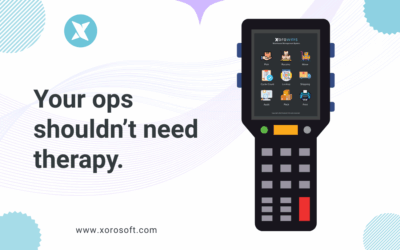
Introduction to ERP Systems
ERP systems are powerful tools that can revolutionize the way businesses manage their operations. By integrating data and processes across different departments, ERP solutions provide a centralized platform for decision-making, data analysis, and process optimization. From streamlining inventory management to automating accounting workflows, ERP systems are designed to enhance productivity, reduce errors, and improve overall business performance.
Understanding the Importance of User Training and Support in ERP Success
While the technological features of an ERP system are undoubtedly crucial, the success of its implementation ultimately depends on the end-users’ ability to effectively utilize the system. Comprehensive user training and ongoing support are essential for ensuring that employees can navigate the ERP software, understand its functionalities, and leverage its capabilities to their full potential. Without proper training and support, users may struggle to adopt the new system, leading to frustration, inefficiencies, and a suboptimal return on investment (ROI).
Benefits of Effective User Training and Support
- Increased User Adoption: Thorough user training and ongoing support can foster a smooth transition to the new ERP system, encouraging employees to embrace the technology and actively utilize its features.
- Improved Productivity: When users are well-trained and supported, they can navigate the ERP system more efficiently, reducing the time and effort required to complete tasks and increasing overall productivity.
- Reduced Errors and Mistakes: Comprehensive user training helps minimize data entry errors, process errors, and other mistakes that can negatively impact business operations and decision-making.
- Enhanced Data Accuracy: With users who are proficient in the ERP system, organizations can be confident in the integrity and reliability of the data stored and analyzed within the system.
- Faster ROI: By maximizing user adoption and productivity, effective user training and support can accelerate the realization of the ERP system’s benefits, leading to a faster return on the initial investment.
Common Challenges in Implementing ERP Systems
Despite the numerous benefits of ERP systems, organizations often face several challenges during the implementation process. These challenges can include:
- Resistance to Change: Employees may be reluctant to adapt to a new system, especially if they are comfortable with existing processes and tools.
- Lack of User Engagement: Without adequate user involvement and buy-in, the implementation process can become disjointed and less effective.
- Insufficient Training and Support: Inadequate or poorly executed user training and support can hinder the successful adoption of the ERP system.
- Data Migration and Integration: Seamlessly integrating the ERP system with existing data sources and business processes can be a complex and time-consuming task.
- Customization and Scalability: Ensuring that the ERP system can be customized to meet the organization’s unique needs and scaled as the business grows can be a significant challenge.
Best Practices for User Training and Support in ERP Implementation
To overcome these challenges and maximize the success of an ERP implementation, organizations should follow these best practices for user training and support:
- Develop a Comprehensive Training Plan: Create a detailed training plan that covers all aspects of the ERP system, including functionality, workflows, and data management. Tailor the training content to the specific needs and roles of different user groups.
- Provide Hands-On Training: Incorporate interactive, hands-on training sessions that allow users to practice using the ERP system in a safe, guided environment. This approach helps reinforce learning and build user confidence.
- Offer Ongoing Support: Establish a dedicated support system, such as a help desk or a team of ERP experts, to provide users with immediate assistance and address any questions or issues that arise during the implementation and beyond.
- Foster a Culture of Learning: Encourage a continuous learning environment by providing regular refresher training, updating users on new features or enhancements, and creating a knowledge-sharing platform for users to exchange best practices.
- Leverage Technology-Enabled Training: Utilize digital training tools, such as e-learning modules, video tutorials, and interactive simulations, to make training more accessible, engaging, and tailored to individual learning styles.
- Measure and Optimize: Regularly assess the effectiveness of the training and support program by gathering user feedback, monitoring adoption rates, and analyzing key performance indicators. Use these insights to continuously improve and refine the training and support strategies.
Key Features to Look for in an ERP System for Effective User Training and Support
When selecting an ERP system, it’s important to consider the features that can enhance user training and support. Look for ERP solutions that offer:
- Intuitive User Interface: An easy-to-navigate, visually appealing user interface that minimizes the learning curve for employees.
- Embedded Training and Documentation: Comprehensive in-app training resources, such as step-by-step guides, tutorials, and context-sensitive help, to provide users with immediate assistance.
- Customizable Roles and Permissions: The ability to tailor user access and permissions based on job functions, ensuring that employees can focus on the relevant features and workflows.
- Robust Reporting and Analytics: Powerful reporting and data visualization tools that enable users to generate valuable insights and make data-driven decisions.
- Mobile Accessibility: Mobile-friendly capabilities that allow users to access the ERP system and receive support on-the-go, enhancing flexibility and productivity.
- Ongoing Support and Updates: Reliable customer support services, regular software updates, and a commitment to continuous improvement, ensuring that users can stay informed and adapt to changes in the ERP system.
How Xorosoft ERP Can Help Maximize ERP Success with User Training and Support
At Xorosoft, we understand the critical role of user training and support in achieving ERP success. Our comprehensive ERP solution, Xorosoft ERP, is designed with a strong emphasis on user-centric features and support, ensuring a seamless implementation and adoption process for our clients.
The Role of User Training in Optimizing Inventory Management with ERP Systems
Effective user training is particularly important in the context of inventory management, where the ERP system plays a vital role in streamlining processes, reducing waste, and maintaining optimal stock levels. Our Xorosoft ERP solution offers intuitive inventory management modules, complemented by comprehensive training programs that empower users to:
- Accurately track and manage inventory levels
- Efficiently handle procurement, receiving, and warehousing operations
- Leverage real-time data to make informed decisions about inventory replenishment
- Minimize stockouts and overstocking through advanced forecasting and planning capabilities
By equipping users with the knowledge and skills to effectively utilize the ERP system’s inventory management features, we help our clients optimize their supply chain operations and enhance overall business performance.
The Role of User Training in Streamlining Accounting Processes with ERP Systems
In the realm of financial management, the integration of ERP systems can revolutionize accounting workflows, automate tedious tasks, and provide greater visibility into financial data. Our Xorosoft ERP solution offers robust accounting modules, complemented by comprehensive user training programs that enable employees to:
- Seamlessly manage accounts receivable, accounts payable, and general ledger functions
- Streamline the financial reporting and analysis process
- Ensure the accuracy and integrity of financial data through automated controls and validations
- Gain real-time insights into the organization’s financial health and performance
By empowering users to leverage the full capabilities of the ERP system’s accounting features, we help our clients enhance financial management, strengthen compliance, and make more informed business decisions.
Conclusion: Achieving Maximum ERP Success with User Training and Support
In the dynamic business landscape, the success of an ERP implementation hinges not only on the system’s technological capabilities but also on the ability of users to effectively leverage its features. By prioritizing comprehensive user training and ongoing support, organizations can unlock the true potential of their ERP investments, foster a culture of continuous learning, and drive sustainable business growth.
At Xorosoft, we are committed to helping our clients maximize the success of their ERP journeys. Our Xorosoft ERP solution, combined with our robust user training and support programs, empowers organizations to streamline their operations, improve decision-making, and achieve their strategic objectives.









